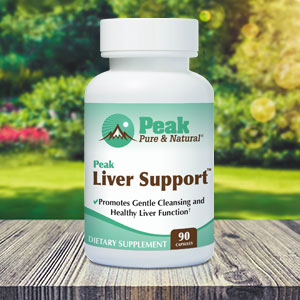Get Easy Health Digest™ in your inbox and don’t miss a thing when you subscribe today. Plus, get the free bonus report, Mother Nature’s Tips, Tricks and Remedies for Cholesterol, Blood Pressure & Blood Sugar as my way of saying welcome to the community!
The liver disease that stalks night owls

If I told you that your sleep habits could have a direct effect on the health of your liver, you might be surprised.
After all, there’s no apparent connection between the two.
But when a group of scientists dug a little deeper into this mysterious link, they discovered that simply improving the quality of your sleep can indeed save you from becoming one of the 80 million Americans with a deadly and incurable liver disease…
Late nights and napping raises risk for NAFLD
Non-alcoholic fatty liver disease (NAFLD) is one of the most prevalent forms of liver disease. It occurs when fat builds up in the liver and can lead to severe health problems, increasing your risk of heart disease, cirrhosis, liver cancer and metabolic disease.
“People with poor nighttime sleep and prolonged daytime napping have the highest risk for developing fatty liver disease,” says Dr. Yan Liu of the Department of Nutrition at China’s Sun Yat-sen University.
The researchers analyzed sleep behavior reported by 5,011 adults with fatty liver disease.
They found that three sleep habits were significantly associated with an increased risk of fatty liver disease:
- Late bedtime
- Snoring
- Daytime napping for more than 30 minutes
Even a moderate improvement in these factors led to a 29 percent reduction in fatty liver disease risk.
Obesity and diabetes compound the effects of poor sleep
One important detail of the research findings should not be ignored.
Poor sleep habits made risk for NAFLD higher. But when central obesity (a “spare tire”) and a sedentary lifestyle were also present, the risk spiked even higher.
When you think about the “fuel” behind fatty liver disease, this finding is not surprising.
After all, fatty liver disease is “triggered” by, among other things, obesity, elevated blood sugar/diabetes, and lack of exercise.
So it stands to reason that if poor sleep is indeed a factor, these conditions would only make things worse.
Start protecting your liver now
NAFLD can also be caused by genetic and/or glandular issues. But even if this is something you face, there is a lot you can do to avoid becoming a statistic:
1. Control your weight. Obesity is a clear risk factor for NAFLD. Paying attention to your weight and keeping it in a healthy range is a big step toward keeping your liver healthy.
2. Limit high-carb food. Processed foods and refined sugar are converted directly to the fat that can overwhelm your liver.
3. Exercise regularly. Frequency and routine are more important than “breaking a sweat.” Research shows that aerobic exercise is the best exercise for a fatty liver. Swimming, cycling or walking are all low-impact forms of aerobic exercise.
4. Eat more produce. There’s a Mexican plant called chaya, or “tree spinach,” that’s known for helping to reduce liver inflammation. But more common vegetables such as carrots, cabbage, and sweet potato contain an important liver-protecting antioxidant.
5. Drink green tea. Among its other health benefits, studies show that green tea extract can help cleanse your liver and rid it of fat that would otherwise accumulate, with liver disease as the result.
6. Other liver-friendly foods. Broccoli, almonds, asparagus, and even coffee have nutrients that support a healthy liver.
And, if you need another reason to keep your liver healthy, it’s been shown that a healthy liver also supports a healthy heart!
Editor’s note: There are perfectly safe and natural ways to decrease your risk of blood clots including the 25-cent vitamin, the nutrient that acts as a natural blood thinner and the powerful herb that helps clear plaque. To discover these and other secrets of long-lived hearts, click here for Hushed Up Natural Heart Cures and Common Misconceptions of Popular Heart Treatments!
Sources:
People with poor sleep behaviors may be at risk for fatty liver disease — Science Daily
Sleep Factors in Relation to Metabolic Dysfunction-Associated Fatty Liver Disease in Middle-Aged and Elderly Chinese — Journal of Clinical Endocrinology and Metabolism
More than 80 million Americans have this deadly disease, and many don’t even know it — CNBC













